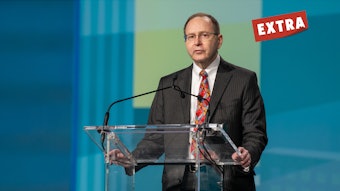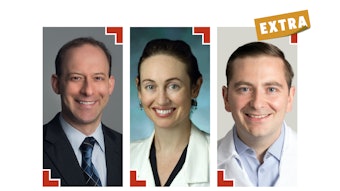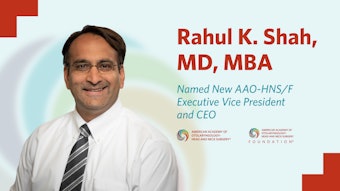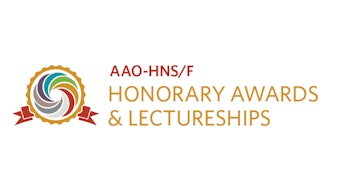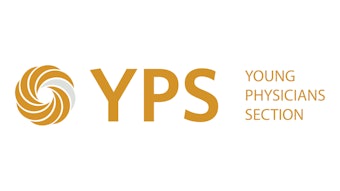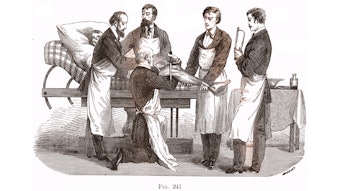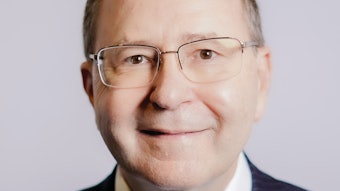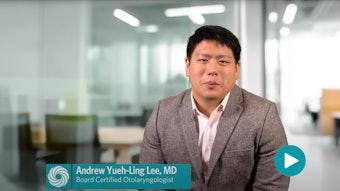Academy Members Visit Washington to Advocate for Specialty Physicians
Conference attendees spoke with Congressional representatives about improving policies regarding Medicare physician payment, prior authorization reform, and physician shortages.
 (From left to right: John W. Werning, MD, DMD, Mary T. Mitskavich, MD, Troy D. Woodard, MD, Jack A. Shohet, MD, Yolanda L. Troublefield, MD, JD, Stephen P. Cragle, MD, Anne K. Maxwell, MD, Dole P. Baker, MD, and Michael S. Xydakis, MD, MSc. Not pictured: Eileen M. Raynor, MD.)
(From left to right: John W. Werning, MD, DMD, Mary T. Mitskavich, MD, Troy D. Woodard, MD, Jack A. Shohet, MD, Yolanda L. Troublefield, MD, JD, Stephen P. Cragle, MD, Anne K. Maxwell, MD, Dole P. Baker, MD, and Michael S. Xydakis, MD, MSc. Not pictured: Eileen M. Raynor, MD.)
Ten Academy members came to Washington, DC, on Tuesday, July 30, 2024, to participate in an advocacy conference hosted by the Alliance of Specialty Medicine. The alliance is a coalition of national medical societies representing specialty physicians in the United States. This non partisan group is dedicated to developing sound federal healthcare policy that fosters patient access to the highest quality specialty care. This year’s conference brought together physicians from a dozen different medical specialties to advocate for the critical issues facing specialty medicine.
On Tuesday morning, conference participants gathered to hear from several members of Congress about the latest health policy updates from Capitol Hill. Congressman Larry Bucshon, MD (R-IN), Rep. Jim McGovern (D-MA), Sen. Roger Marshall, MD (R-KS), and Sen. Bill Cassidy, MD (R-LA) all spoke and offered their perspectives on the state of healthcare policy. Each member of Congress emphasized that physicians need to be advocates—for themselves and for their patients. They stressed that more of their colleagues in Congress need to hear directly from physicians about the impact that bad healthcare policies can have in their communities.
 Mary T. Mitskavich, MD, (far right) with the New Jersey delegation.
Mary T. Mitskavich, MD, (far right) with the New Jersey delegation.
First, the attendees spoke with these representatives about reforming Medicare physician payment. For the past 20 years, Medicare physician payment has steadily declined in relation to inflation. This is because physicians are the only group in Medicare that does not receive an annual inflationary update. The Medicare Physician Fee Schedule (MPFS) also operates on a policy of budget neutrality, which prohibits additional money from being added to the pool of physician payments. Therefore, when new codes or services are added to the MPFS, it often requires cutting physician payments to keep the total cost of the MPFS level.
The conference attendees advocated for several bills that would provide an inflationary update to the MPFS and reform the policy of budget neutrality. If adopted, these proposals would help stabilize physician payment and secure continued access to care for America’s seniors.
Second, attendees advocated for prior authorization reform. As physicians know all too well, prior authorization processes have become much more burdensome in recent years. Patients are experiencing significant barriers to medically necessary care due to prior authorization requirements for items and services that are eventually approved. This is especially true in Medicare Advantage. That’s why attendees advocated for the Improving Seniors’ Timely Access to Care Act, which would streamline prior authorization in Medicare Advantage by allowing for electronic submissions and increasing transparency around prior authorization requirements. Passage of this bill would codify similar rules recently released by the Centers for Medicare and Medicaid Services and help ease this heavy burden often placed on physicians.
Third, the attendees spoke about physician shortages. According to the Association of American Medical Colleges, the United States faces an overall shortage of up to 86,000 physicians by 2036, including 44,000 specialty physicians. To address the shortage, there needs to be more residency slots available to help grow the workforce. That is why the attendees advocated for a bill that would create a total of 14,000 new Medicare-funded graduate medical education slots over the next seven years.
In total, over 60 specialty physicians from around the country attended this conference and participated in more than 100 meetings with lawmakers’ offices. The conference represented an invaluable opportunity for Academy members to come to Washington, DC, and advocate on behalf of otolaryngologists across the country. Doing so helped them form and solidify critical relationships with the offices of their elected officials. Two of the attendees offer their reflections on the experience.
 Troy D. Woodard, MD, (left) and John Werning, MD, (right) representing Ohio.
Troy D. Woodard, MD, (left) and John Werning, MD, (right) representing Ohio.
— Troy D. Woodard, MD, AAO-HNSF President-Elect
 Anne K. Maxwell, MD, on Capitol Hill.
Anne K. Maxwell, MD, on Capitol Hill.
— Anne K. Maxwell, MD, Chair, Board of Governors Legislative Affairs Committee
While the conference was a resounding success, our work is far from over. The Academy’s Advocacy team will continue to push Congress to act on these issues and more. Even if you can’t come to Washington, there is still a lot you can do from home!
Visit the Academy’s Federal Legislative Advocacy page to learn more about policy priorities for the specialty and take part in our action alerts. You can send messages directly to your elected officials and demand they act on these critical issues!
